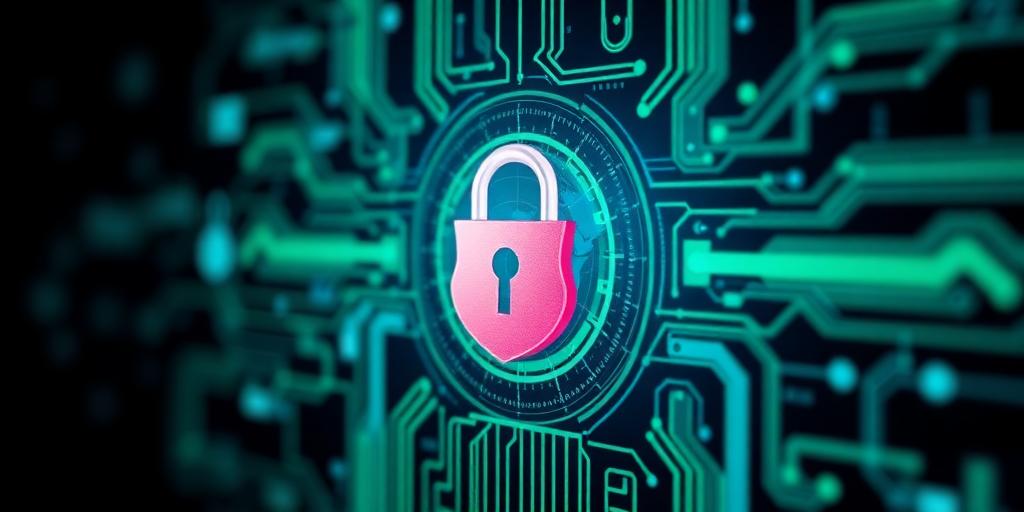Cybersecurity for Your Personal Life in 2025
As we advance towards 2025, the digital landscape continues to evolve, bringing with it increasingly sophisticated cybersecurity threats. Protecting your personal data and digital assets is no longer optional; it’s a necessity. This guide provides an informative overview of the key areas you need to focus on to ensure your cybersecurity posture is robust and up-to-date.
Understanding the Threat Landscape
Before diving into specific measures, it’s crucial to understand the types of threats you’ll likely face. In 2025, expect to see:
- Phishing Attacks: These will become even more sophisticated, using AI to create highly personalized and convincing emails and messages.
- Ransomware: Targeting not just businesses, but also individuals, encrypting personal files and demanding payment for their release.
- IoT Vulnerabilities: With more devices connected to the internet, from smart home appliances to wearable tech, each becomes a potential entry point for attackers.
- Data Breaches: Large-scale breaches of personal data will continue to occur, exposing sensitive information to malicious actors.
- Deepfakes: The use of AI-generated fake videos and audio to manipulate individuals and spread disinformation will become more prevalent.
Key Areas of Focus for Personal Cybersecurity in 2025
-
Strong Passwords and Multi-Factor Authentication (MFA):
- Use strong, unique passwords for every online account. A password manager can help you generate and store these securely.
- Enable MFA wherever possible. This adds an extra layer of security by requiring a second form of verification, such as a code sent to your phone, in addition to your password.
-
Software and Device Updates:
- Keep all software, including your operating system, web browser, and apps, up to date. Updates often include critical security patches that address known vulnerabilities.
- Enable automatic updates whenever possible to ensure you’re always running the latest version.
-
Secure Your Home Network:
- Use a strong password for your Wi-Fi network and enable WPA3 encryption.
- Consider using a virtual private network (VPN) to encrypt your internet traffic and protect your privacy.
- Regularly check your router’s firmware for updates.
-
Be Cautious Online:
- Be wary of suspicious emails, links, and attachments. Don’t click on anything unless you’re absolutely sure it’s legitimate.
- Verify the sender’s identity before providing any personal information.
- Be careful about what you share on social media. Cybercriminals can use this information to target you.
-
Protect Your IoT Devices:
- Change the default passwords on all IoT devices.
- Keep the firmware up to date.
- Disable features you don’t need.
- Consider isolating IoT devices on a separate network.
-
Back Up Your Data:
- Regularly back up your important files to an external hard drive or cloud storage service.
- In the event of a ransomware attack or other data loss incident, you’ll be able to restore your files without paying a ransom.
-
Educate Yourself:
- Stay informed about the latest cybersecurity threats and best practices.
- Follow cybersecurity news and blogs.
- Take online courses or workshops to improve your knowledge.
The Role of AI in Personal Cybersecurity
In 2025, AI will play an increasingly important role in both cybersecurity threats and defenses. AI-powered tools can help you:
- Detect and block phishing attacks.
- Identify and remove malware.
- Monitor your network for suspicious activity.
- Automate security tasks.
However, it’s important to remember that AI is not a silver bullet. It’s just one tool in your cybersecurity arsenal. You still need to take proactive steps to protect yourself.
Conclusion
Cybersecurity for your personal life in 2025 requires a multi-faceted approach. By understanding the evolving threat landscape, focusing on key areas such as strong passwords, software updates, and cautious online behavior, and leveraging the power of AI, you can significantly reduce your risk of becoming a victim of cybercrime. Staying informed and proactive is the best defense in the digital age. The steps outlined above are crucial for maintaining a secure digital existence in 2025 and beyond, providing a foundation for a safer and more secure personal life in an increasingly connected world.
